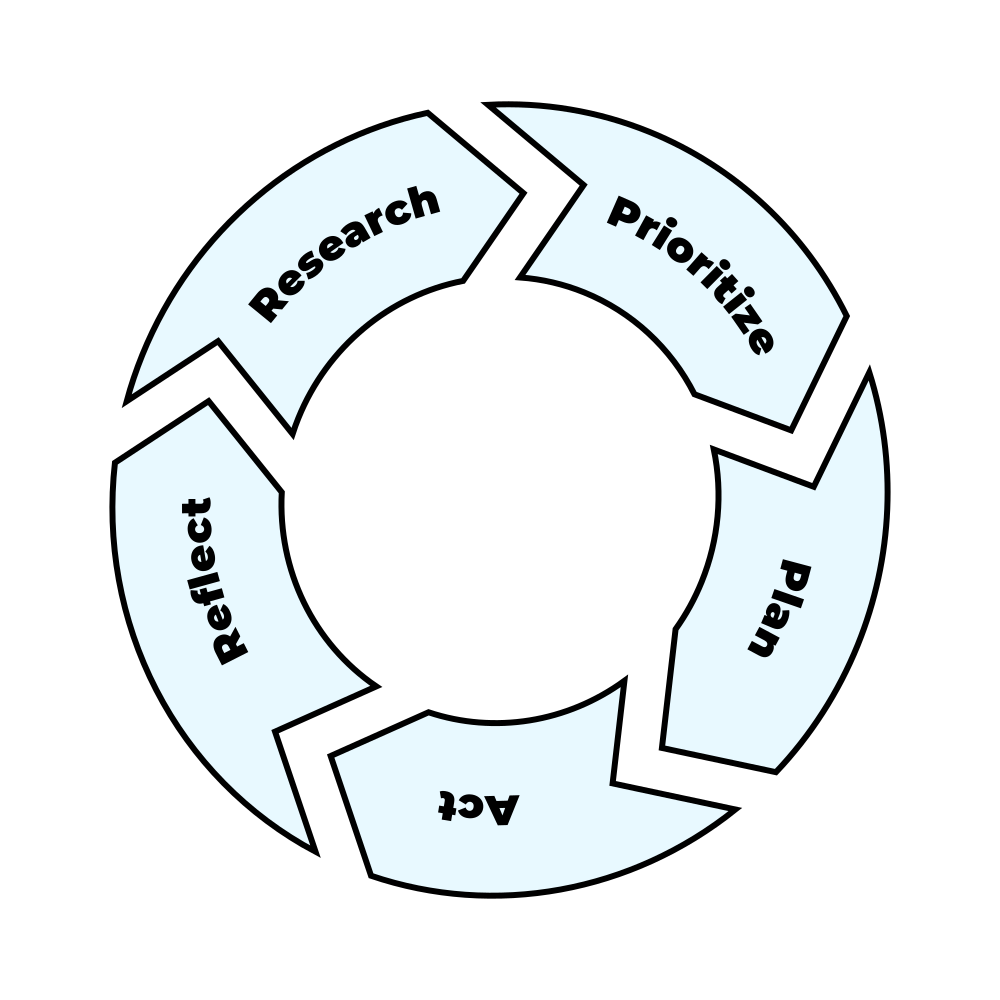The Cycle of Long-term Success (UPDATED)
AIDAS BENDORAITIS / FEBRUARY 2, 2021
AIDAS BENDORAITIS / FEBRUARY 2, 2021
Reading time: 2 minutes.
One kind of events in life happens spontaneously, unplanned, powered by intuition, and seeming random. Calling a friend, buying a chocolate bar, or sitting down on a bench at a fountain doesn’t require special preparation.
Another kind of events requires making hard decisions because of the urge to gain something huge or the risk of losing something important. In those cases, it’s better to get prepared.
In life, as in nature, everything happens in cycles. Previously I introduced you to the cycle of long-term success as I saw it at that moment. Today, I have refined the mentioned cycle, and now it consists of these 5 steps: research, prioritize, plan, act, reflect.

Research is formalized curiosity. It is poking and prying with a purpose.– Zora Neale Hurston
First of all, before taking a measured action, you would need to find out what your choices are today. You can use a search engine, Wikipedia, references, podcasts, magazines, books, or anything else that provides you with information that you could utilize in your field of focus. Gather information with the intent to incorporate it into your activities.
“If everything is important, then nothing is.”– Patrick M. Lencioni
There are several ways to set priorities for your activities. You can use the flexible and mighty prioritizer “1st things 1st”, decision matrices in Excel sheets, Eisenhower Matrix on a piece of paper, or maybe just selecting the first several priorities intuitively.
If you don’t design your own life plan, chances are you’ll fall into someone else’s plan. And guess what they have planned for you? Not much.– Jim Rohn
Put your most important activities on the schedule. You can use Google Calendar, Apple Calendar, monday.com, any other scheduling app, or even an analog calendar on your wall or in your Moleskine. Try not to have more than 3 activities in a day. Book yourself or your colleagues for the vital work to do.
Act as if what you do makes a difference. It does.– William James
Now it’s time to do what you have planned. Have a necessary meeting or a zoom call, speak, write, or perform what’s on your list today this hour.
It is only by reflecting on the past that one can create a better future.– Rithy Panh
If you got positive results, celebrate the wins. If you failed, see what you can learn from your mistakes. The next time will be better. Now go back to the first step and do the new research.
If you master the cycle of long-term success, you form a habit of success. Whether you win or lose, you gain experience and become excellent at what you do.
Cover photo by Ian Stauffer